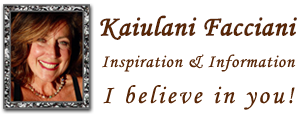Post #5: Potent cancer killers
Highlights from the International Integrative Oncology Conference – San Diego, April 2016
Galectin-3, Modified Citrus Pectin, and Magnolia bark
presentation by Isaac Eliaz, MD, MS, LAc
You may remember reading about Dr. Eliaz as I covered his lecture at the Complementary and Alternative Cancer Therapies Conference (aka Annie Appleseed). Dr. Eliaz has been focusing on using Galectin-3 levels as a new biomarker for cancer and reducing those levels and cancer with the use of Modified Citrus Pectin. Galectin-3 is a protein associated with a three-fold increase in mortality, usually associated with heart disease. But, since it appears to promote angiogenesis, or the formation of a network of blood vessels which supply tumors, it is being studied for its relevance to cancer.
I found him equally fascinating this time and had the chance to talk to him about my own Galectin-3 levels. After his last lecture, I asked my oncologist to check my levels. The test is most commonly used to assess heart disease and since I must monitor my heart health on Herceptin, insurance paid for it. In previous research, healthy individuals had a median level of 62, and metastatic breast cancer patients had a median level of 170.
Since I was diagnosed Stage 4, with metastases to the lungs, liver, lymph, spine, pelvis, and brain, I thought my levels would be up around there. But I am NED, no evidence of disease, so hopefully, they would be much lower. Dare I hope my levels might approach the levels of a healthy person? Dr. Eliaz indicated that if one wanted to fend off the ravages of cancer and heart disease, one should aim for a level less than 18. I introduced myself, told him my story and asked him what he thought my Gal-3 levels would be. He said I looked so incredibly healthy that perhaps they might be as low as 12. I beamed and told him they were 9!!!! He hugged me!
So how does one get their Galectin-3 levels down? Modified Citrus Pectin is an antagonist to Galectin-3 that decreases expression and blocks the damage caused by excess Galectin-3. It inhibits cancer growth and metastasis, enhances the effects of chemotherapy, modulates immune function, and chelates heavy metals. Dr. Eliaz presented copious research showing these different facets. I did not take MCP, however, if I were actively fighting cancer, I would. My detoxification protocol and nutritional support apparently did it for me but perhaps MCP would do it that much quicker.
Another method he has pioneered in reducing Galectin-3 levels is Therapeutic Apheresis, where, they remove your blood, extract Galectin-3, and then give you your blood back. At his clinic, they have found this method to boost the effects of chemotherapy as well as reduce inflammation, metastasis, and recurrence. Find out more about Galectin-3 and the research into it here. You can also download a free guide to Gal-3 and MCP here.
Dr. Eliaz also talked about Honokiol, a powerful anti-cancer compound derived from the bark of the Magnolia tree which has been an ancient staple of traditional Asian medicine. It is hundreds of times stronger than curcumin, protects the brain, crosses the blood-brain barrier, and kills cancer. It inhibits angiogenesis, fighting cancer growth and reducing proliferation. Honokiol stimulates apoptosis, or cancer cell death by itself as well as enhancing the apoptic effects of certain chemotherapies. It suppresses certain cancer proteins and it redifferentiates the cell and opens the mitochondria only in cancer cells, bringing about their death. You can find out more and get a free Honokiol guide here.
This post is part of a series covering the Highlights of the International Integrative Oncology Conference – San Diego, April 2016. Click for more posts.
I attended the 14th annual International Integrative Oncology Conference in San Diego as well as the accompanying Answers for Cancer Summit. The former is directed towards integrative oncologists and other cancer care professionals and the latter is for patients, caregivers, and other “laymen” interested in integrative therapies. It is put on by Annie Brandt, a 15-year cancer survivor and founder of the Best Answer for Cancer Foundation (www.thebestanswerforcancer.org) and I was truly impressed by the credentials of the presenters and the quality of the information presented. Truthfully I was a little over my head at times during the professionals conference as they bandied about acronyms faster than I could Google. Although they presented slide upon slide on medical research, I am not including the complete references for the most part because of the time required. I am only providing highlights, and only of subjects I deemed relevant to our day-to-day lives as cancer patients. I have tried to translate into laymen’s terms and provide just enough information so that you can research more fully on subjects that interest you. I encourage you to discuss these subjects with your oncologist. It was very comforting and refreshing to be surrounded by doctors and health professionals who absolutely understand the role of diet and lifestyle in fighting this devastating disease and incorporate this knowledge into their oncology practices.
Disclaimer: Nothing contained on this website should be construed as medical advice. I am not a doctor. I am a Stage IV breast cancer thriver who is currently NED/NAD and simply sharing what I did, and do, and why. Please research anything I share to determine if it is a good path for you. Bless you all on the path you choose.
